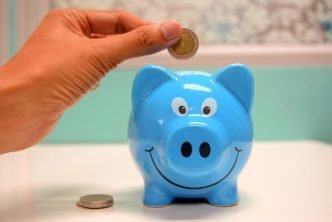The textile industry involves the designing, manufacturing, and distribution of fabrics and cloth products. It dramatically impacts global economies, significantly contributing to total Manufacturing GDP and employment worldwide.
Table of Contents
Concept of Sustainability in the Textile Industry
The concept of sustainability in the textile industry revolves around producing garments through environmentally friendly methods, reducing waste, and promoting recycling and ethical labour practices.
Recycled Polyester
Recycled Polyester, often referred to as rPET, is a sustainable fabric derived from recycled plastic bottles. The process involves collecting and sterilizing plastic bottles, transforming them into small chips, and then converting these chips into high-quality polyester fibres. This eco-friendly material is part of a global effort towards sustainability and conserving the environment, as it reduces plastic waste and prevents it from ending up in landfills or oceans. An increasing number of industries, including fashion, upholstery and automotive industries, are incorporating recycled polyester due to its durability, versatility and reduced environmental impact.
Traditional Polyester
Traditional polyester is a durable and versatile synthetic fabric. It’s resistant to many forms of wear and tear, including stretching, shrinking, and wrinkles. Polyester is commonly used in clothing and home furnishings.
Development of Recycled Polyester process
The development of the recycled polyester process utilizes plastics, primarily water bottles, which are cleaned, crushed, and reshaped into fibres. This innovation is both economically advantageous and crucial for environmental sustainability, reducing landfill accumulation and pollution.
The Benefits of Recycled Polyester
Environmental Benefits
Environmental benefits include cleaner air and water, conservation of biodiversity, and reduction of greenhouse gas emissions. These advantages significantly improve human health and contribute to the sustainability of our planet for future generations.
Reduction of Plastic Waste
Reduction of plastic waste is essential. By implementing recyclable materials, encouraging less single-use plastics, and promoting environmental education, we can mitigate plastic pollution and protect our ecosystem.
Energy Efficiency
Energy efficiency refers to the productive utilization and conservation of energy in our daily activities. Implementing energy-efficient practices reduces unnecessary energy consumption, aiding in environmental preservation and monetary savings.
Decreased Water Use
Decreased water use plays a crucial role in conserving our precious resources. It involves implementing water-saving techniques like collecting rainwater, fixing leaks, and using water-efficient appliances. This contributes significantly to environmental sustainability.
Economic Benefits
Economic benefits refer to the positive financial impact generated by business activities. This includes job creation, revenue generation, increased market competition, and financial contribution to local and national economies.
Cost-Effective Production
Cost-effective production is a strategic approach in manufacturing that optimizes resources to reduce costs. It involves streamlining operations, improving efficiency, and utilizing cost-efficient materials to increase profit margins.
Increasing Demand for Eco-Friendly Products
The increasing demand for eco-friendly products reflects the global shift towards sustainability. Consumers nowadays prioritize companies that show environmental responsibility, influencing their purchasing decisions and promoting greener economies.
Functional Benefits
Functional benefits refer to the practical or utilitarian advantages that consumers can experience from using a product or service. These include aspects such as durability, cost-effectiveness, or improved efficiency or performance.
Durability and Longevity
Durability and longevity are significant attributes of a quality product. A durable product that withstands wear and tear, ensuring longevity, hence saving cost over time. They guarantee sustainability and value for a customer’s investment.
Versatility in Applications
Versatility in applications is crucial, allowing software to cater to various user needs. It expands their functionality, enhances usability and fosters innovation. A versatile application adapts to different scenarios, increasing its value and user satisfaction.
Use in the Clothing Industry
The clothing industry extensively uses materials like cotton, wool, and synthetic fibres. It involves designing, manufacturing, and selling apparel, with technology playing a pivotal role in enhancing productivity and creativity.
Use in Home Decor Items
Home decor items are used to enhance the aesthetic appeal of spaces. They include items like paintings, sculptures, rugs, wall hangings, and lights, amongst others, aiding in the expression of personal style and taste.
Use in Industrial Applications
Industrial applications commonly utilize automation technology for efficiency and precision. This includes robotics for assembly lines, computer-aided design for product development, and sophisticated machinery for intricate manufacturing processes.
Future potential uses
Future potential uses could involve revolutionary advancements in various areas including artificial intelligence, blockchain, renewable energy and biotechnology. These cutting-edge technologies promise transformative possibilities for the business, environment and healthcare sectors.
Challenges Facing the Use of Recycled Polyester
Technical Challenges
Technical challenges often hinder the smooth functioning of operations in any field. They could be related to hardware malfunctions, software glitches, or cybersecurity threats. Addressing these requires proficient troubleshooting, constant upgradation, and skill development.
Market Acceptance
Market acceptance refers to the potential customers’ willingness to purchase or adopt a new product or service. It’s a crucial determinant in the success of new product launches, heavily influenced by effective marketing strategies, customer needs, and product quality.
Regulatory Requirements
Regulatory requirements are essential rules businesses must abide by to ensure safety, fairness, and truthfulness. They foster trust, protecting both the consumer and the business environment from any misconduct or harm. Compliance maintains corporate reputation and prevents legal issues.





